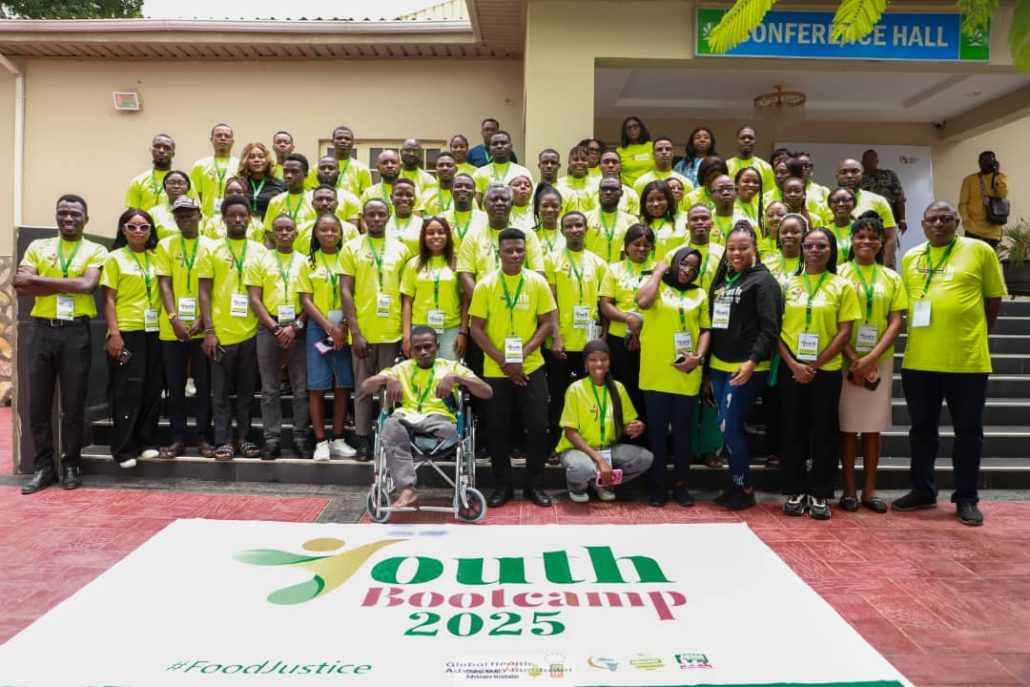
The Federal Government has been urged to strengthen policies regulating food and beverages to check the rising burden of Non-Communicable Diseases (NCDs) in the country.
Executive Director of Corporate Accountability and Public Participation Africa (CAPPA), Mr. Oluwafemi Akinbode, made the call at the opening of the five-day Youth Bootcamp for Food Justice 2025 held at Ikogosi Warm Springs Resort, Ikogosi-Ekiti, Ekiti State.
He warned that the rapid rise in diabetes, hypertension, cardiovascular diseases, stroke, and cancers in Nigeria is closely linked to the growing consumption of unhealthy foods and sugar-sweetened beverages.
“Unlike the sudden shock of a viral outbreak, NCDs have crept slowly into households, draining family incomes and overstretching hospitals. WHO data shows NCDs now account for nearly 30 per cent of all deaths in Nigeria, with 22 per cent occurring prematurely between the ages of 30 and 69 – the most productive years of life,” Akinbode said.
According to him, Nigeria’s food environment has changed drastically in the past two decades, with more citizens consuming ultra-processed foods high in sugar, salt and unhealthy fats. He identified soft drinks, instant noodles, salty snacks, and fast foods as major drivers of the epidemic.
Akinbode urged government to impose at least 20 per cent tax on sugar-sweetened beverages, enforce clear front-of-pack warning labels, strengthen sodium reduction policies, and intensify public awareness campaigns.
He noted that while Nigeria introduced a ₦10 per litre excise duty on sugary drinks in 2021, the rate remains too low to influence consumption patterns.
“South Africa, Mexico and other countries have demonstrated that higher tax rates on sugary drinks reduce consumption and push companies to reformulate. Evidence shows Nigeria needs at least ₦130 per litre SSB tax for meaningful health impact,” he said.
He also called for clear and mandatory front-of-pack labelling, as well as enforcement of sodium reduction guidelines, stressing that reducing salt intake could save thousands of lives annually.
On the need for stronger citizen involvement, Akinbode said:
“The fight for food justice will not be won by experts alone. It will be won by informed and organised citizens demanding healthier food policies. Multinational corporations will continue to resist regulation, but without strong laws, taxation and labelling, the burden of NCDs will grow beyond control.”
Also delivering a lecture titled Movement Building, Youth Activism and the Quest for Healthy Food Policies in Nigeria, Dean of the Faculty of Social Sciences, University of Lagos, Prof. Adelaja Odukoya, decried what he called the “loss of food sovereignty” in Nigeria.
He lamented that communities no longer determine what they produce or consume, leaving citizens at the mercy of unhealthy food systems.
“Food justice implies that an injustice exists. Today, people are compelled to eat what is available rather than what is nutritious or beneficial. The consequences are alarming – rising heart diseases, diabetes and cancers. This threatens not only health but also national prosperity and manpower,” Odukoya said.
He urged the Federal Government and patriotic Nigerians to reclaim control of food systems, prioritise local foods, and put people above profits.